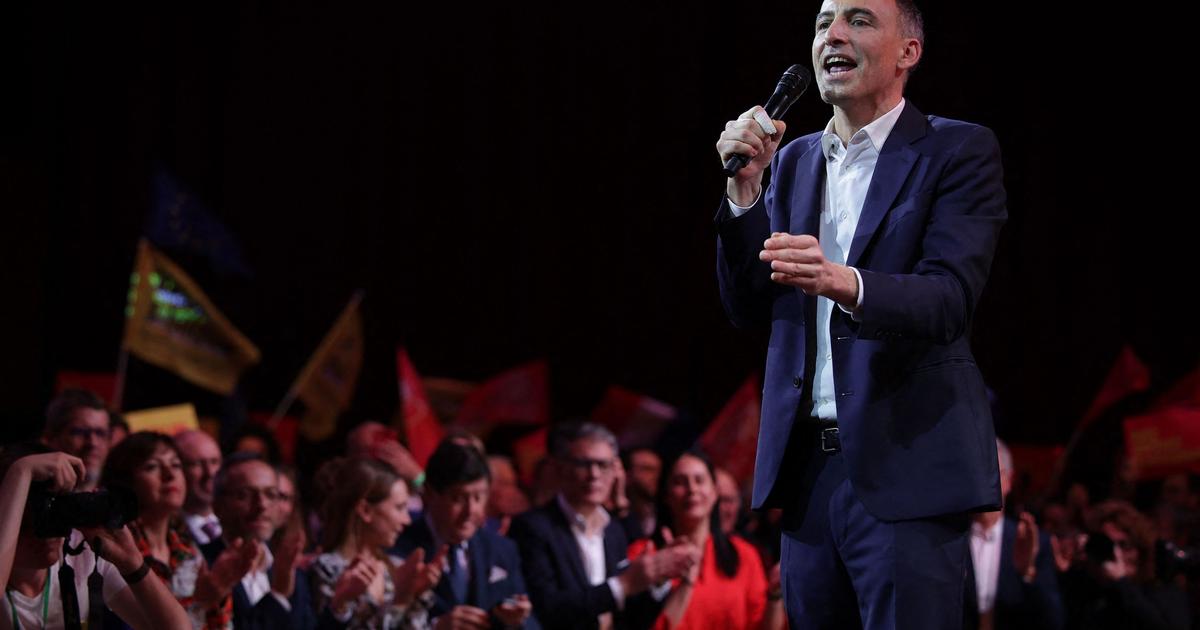Associate professor of social sciences, doctor of political science, | Antoine Bristielle is director of the Opinion Observatory of the Jean-Jaurès Foundation.
He has just published a note
which analyzes the profile of Macron and Mélenchon voters, tempted by the Glucksmann vote.
To discover
PODCAST - Listen to the club Le Club Le Figaro Idées with Eugénie Bastié
LE FIGARO. - The Socialist Party/Public Square list led by Raphaël Glucksmann is third in voting intentions for the European elections in June 2024. How to explain this dynamic?
Antoine BRISITIELLE. -
This is explained by the fact that since 2022, a political space has reopened to the center left, with on the one hand the perception of a radicalization of Jean-Luc Mélenchon and on the other hand the perception of a right-wing of the presidential majority. Under these conditions, the tripartition of the political space observed in 2022 no longer suits a center-left electorate who sees in the political offer proposed by Raphaël Glucksmann something which better corresponds to their expectations.
Out of 100 voters declaring that they want to vote for Raphaël Glucksmann in the next European elections, 38 are former voters of Jean-Luc Mélenchon in the presidential election and 30 are former voters of Emmanuel Macron. More than a vote of adhesion, can the Glucksmann vote be interpreted as a vote of rejection of Mélenchon and Macron?
The logic of the presidential election, in two rounds, and that of the European elections, proportional, have nothing to do with each other. At the time of the presidential election, the “useful vote” is in full swing, which is not the case at the time of the European elections, where we can therefore see largely different electoral balances of power.
Do voters moving from Mélenchon 2022 to Glucksmann 2024 and those moving from Macron 2022 to Glucksmann 2024 do so for the same reasons? What are they ?
The reasons are completely different. Voters switching from Mélenchon to Glucksmann do so for reasons linked to international issues: being in favor of aid to Ukraine, considering that Hamas is a terrorist organization and being in favor of European Union, pushes a part of the electorate are the driving forces of the “switch” from Mélenchon to Glucksmann. On the contrary, voters switching from Macron to Glucksmann do so for reasons linked to national issues. The “switch” here is explained by the fact of being opposed to pension reform, being favorable to the feminist movement, being favorable to immigration and asking for more measures to preserve the environment.
Since 2017, social democracy has been caught between the attractiveness of Jean-Luc Mélenchon during the presidential campaigns and Emmanuel Macron's desire to connect the center left and the center right. F
Antoine Bristielle
We note that the “switchers” from LFI to Glucksmann have a higher level of income than loyal LFI voters. Is Glucksmann, to caricature, the “bobo” counterpart of the radical left?
Traditionally, Socialist Party voters have a higher income level than LFI voters. The particularity of the 2022 election was rather that some of these voters, possessing both left-wing values and a high level of income, had not voted PS. There, they plan to return to their original family.
Conversely, the “switchers” from Macron to Glucksmann have lower incomes. How to interpret it?
The start of Macron's second five-year term left its mark on voters, with the perception of a right-wing shift in the presidential camp, particularly on economic and social issues, such as pension reform for example. Part of the working classes who voted for Macron in 2022 now no longer feel listened to by the president and are looking for an alternative. Raphaël Glucksmann is one.
Among the Macronists who left to switch to Glucksmannism, we also find an over-representation of women. For what ?
This is indeed a striking fact. This can be explained by the disappointment felt by part of Emmanuel Macron's electorate following his declarations of support for Gérard Depardieu, and more generally by the impression that gender equality, which should be Emmanuel Macron's great cause is not a subject sufficiently addressed by the president.
Ultimately, the Glucksmann vote is Macronism without retirement at 64, the immigration law and the defense of Depardieu and the Mélenchon path without the ambiguities about Putin and vis-à-vis the Hamas attack?
Yes completely. What is particularly interesting is that this synthesis is carried out on different themes: in opposition to Mélenchon on international issues and in opposition to Macron on national issues. In these conditions Raphaël Glucksmann is not in a position of great ideological gap to seduce two completely different electorates, but proposes a third way of his own. Currently, this positioning seems attractive to part of the electorate.
Should we see the Glucksmann vtoe as a form of renewal of social democracy? Didn't it run out of steam in 2017?
It is still too early to say: on the one hand June 9 is still far away and on the other hand good results in the European elections do not bode well for good results in the following presidential election. However, since 2017 social democracy has been caught between the attractiveness of Jean-Luc Mélenchon at the time of the presidential campaigns and the desire of Emmanuel Macron to connect the center left and the center right. It is clear that the space for social democracy is more important today, with a large part of the center-left electorate who no longer recognize themselves in France Insoumise, nor in the presidential party.

